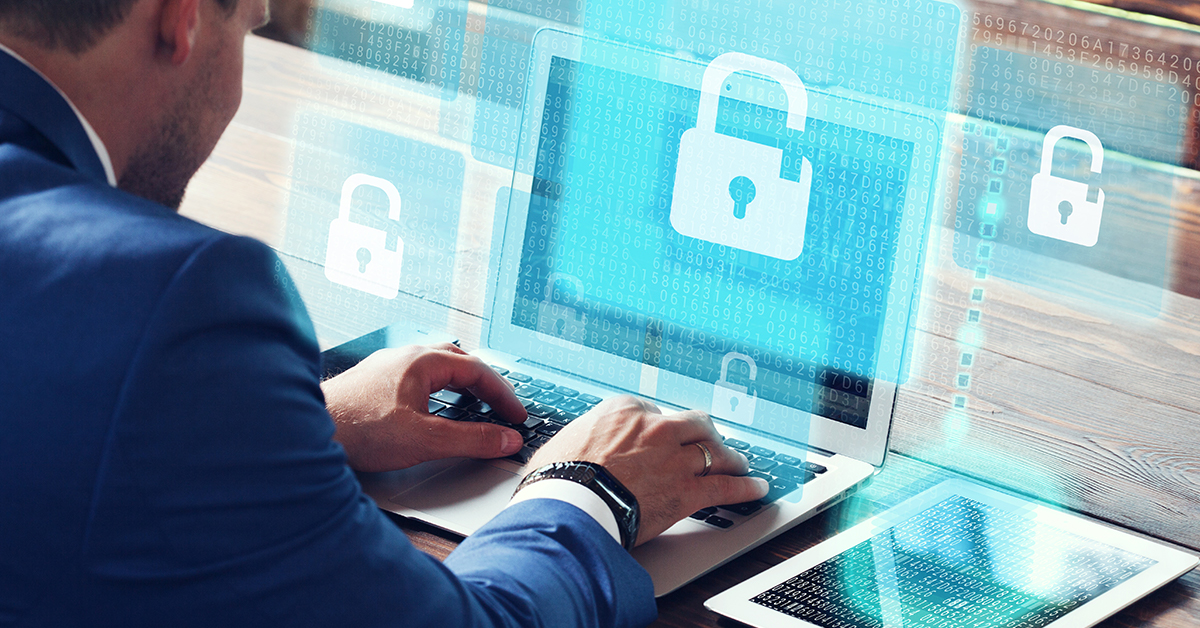For small to mid-sized businesses (SMBs), navigating the complexities of IT management can be daunting. This is where managed IT services come into play, offering a suite of benefits that can significantly enhance business operations. In this detailed guide, we’ll explore the numerous advantages of managed IT services for SMBs, including comprehensive IT infrastructure management, the transformative impact of cloud computing solutions, and the smooth experience of cloud migration services.
1. Understanding Managed IT Services
Managed IT services involve outsourcing the management and support of your IT infrastructure to a third-party provider known as a managed services provider (MSP). These providers offer a wide range of services designed to optimize and secure your IT environment. Key services typically include network management, data backup and recovery, cybersecurity, and cloud solutions. By partnering with an MSP, businesses can leverage specialized expertise and advanced technology without the need for a large in-house IT team.
1.1 The Role of an MSP
An MSP acts as an extension of your business, handling various IT functions and responsibilities. This includes proactive monitoring, system maintenance, and technical support. MSPs use sophisticated tools and best practices to ensure that your IT infrastructure is reliable, secure, and aligned with your business objectives. This allows your internal team to focus on core business functions while leaving the complexities of IT management to the experts.
2. Enhanced IT Infrastructure Management
Effective IT infrastructure management is crucial for ensuring that your systems run smoothly and efficiently. Managed IT services offer several advantages in this regard:
2.1 Streamlined Operations
One of the primary benefits of managed IT services is the streamlining of IT operations. MSPs handle the day-to-day management of your IT systems, including routine maintenance, updates, and performance monitoring. This proactive approach helps prevent issues before they become major problems, ensuring that your systems remain operational and efficient.
For instance, MSPs employ advanced monitoring tools to continuously assess the health of your IT infrastructure. They can identify potential issues, such as network bottlenecks or hardware failures, and address them promptly. This proactive maintenance minimizes downtime and improves overall system performance.
2.2 Predictable Costs
Managed IT services typically come with a predictable monthly fee, which helps businesses manage their IT budgets more effectively. Unlike the unpredictable costs associated with maintaining an in-house IT department, managed services offer a fixed cost model. This fixed fee covers a range of services, including support, maintenance, and upgrades.
This predictability allows businesses to avoid unexpected expenses related to IT issues or emergencies. It also provides clarity in budgeting, making it easier to allocate resources to other areas of your business.
2.3 Access to Expertise
Partnering with an MSP provides access to a team of experts with specialized knowledge in various areas of IT. MSPs employ professionals who are well-versed in network management, cybersecurity, cloud computing, and more. This expertise ensures that your IT systems are managed and optimized according to industry best practices.
For example, MSPs stay updated with the latest technological advancements and industry trends. They can implement cutting-edge solutions and strategies that may be beyond the scope of a traditional in-house IT team. This access to expertise helps your business stay competitive and make informed technology decisions.
3. The Transformative Impact of Cloud Computing Solutions
Cloud computing has revolutionized the way businesses manage and utilize technology. Managed IT services often include cloud computing solutions that offer several significant benefits:
3.1 Scalability and Flexibility
One of the most significant advantages of cloud computing is its scalability and flexibility. Unlike traditional IT infrastructure, which requires substantial capital investment in hardware and software, cloud services allow businesses to scale resources based on their needs. Whether you need additional storage, processing power, or software applications, cloud solutions can be easily adjusted to meet your requirements.
This scalability is particularly beneficial for SMBs with fluctuating needs. For instance, if your business experiences a sudden surge in demand or needs to support a new project, cloud services can quickly accommodate these changes. This eliminates the need for costly hardware upgrades and provides a more agile approach to managing IT resources.
3.2 Improved Collaboration
Cloud computing enhances collaboration among team members, especially in remote or hybrid work environments. Cloud-based tools and applications enable employees to access files, documents, and applications from anywhere with an internet connection. This accessibility promotes seamless collaboration, allowing team members to work together effectively, regardless of their location.
For example, cloud-based project management tools and communication platforms facilitate real-time collaboration and information sharing. This improves productivity and ensures that team members are always on the same page.
3.3 Data Backup and Recovery
Cloud computing solutions offer robust data backup and recovery options. Cloud services automatically back up your data to secure servers, reducing the risk of data loss in the event of a disaster or system failure. This automatic backup ensures that your business can recover quickly and continue operating with minimal disruption.
In addition to automatic backups, cloud services often include disaster recovery solutions. These solutions allow businesses to restore data and applications to a previous state, minimizing downtime and data loss in the event of a major incident.
4. Seamless Cloud Migration Services
Migrating to the cloud can be a complex process, but managed IT services providers offer cloud migration services to ensure a smooth transition. Here’s how these services benefit businesses:
4.1 Smooth Transition
Cloud migration involves transferring your data, applications, and systems from on-premises infrastructure to the cloud. Managed IT services providers handle the entire migration process, including planning, execution, and testing. They work to ensure that the transition is seamless and minimizes disruptions to your business operations.
MSPs use proven methodologies and tools to manage the migration process efficiently. They assess your current IT environment, identify potential challenges, and develop strategies to address them. This careful planning and execution help ensure that your cloud migration is successful and meets your business needs.
4.2 Risk Mitigation
Migrating to the cloud involves certain risks, such as data loss, system downtime, or compatibility issues. Managed IT services providers assess these risks and implement strategies to mitigate them. They perform thorough testing and validation to ensure that your data and applications are securely transferred to the cloud.
For example, MSPs conduct pre-migration assessments to identify potential issues and address them before the migration begins. They also develop contingency plans to handle any unexpected challenges that may arise during the migration process.
4.3 Ongoing Support
After the migration is complete, managed IT services providers offer ongoing support to ensure that your cloud environment remains optimized and secure. They monitor your cloud systems, provide regular updates, and address any issues that arise. This continuous support helps ensure that you continue to benefit from the advantages of cloud computing.
MSPs offer various support services, including performance monitoring, security management, and troubleshooting. They work to ensure that your cloud infrastructure remains reliable and meets your evolving business needs.
5. Enhanced Cybersecurity
Managed IT services provide comprehensive protection against cyber threats. Here’s how MSPs enhance cybersecurity for SMBs:
5.1 Proactive Threat Management
Managed IT services providers use advanced security tools and techniques to monitor your IT environment for potential threats. This proactive approach helps prevent security breaches before they occur. MSPs implement various security measures, such as firewalls, intrusion detection systems, and antivirus software, to protect your systems from malware, ransomware, and other cyber threats.
MSPs also conduct regular security assessments and vulnerability scans to identify and address potential weaknesses in your IT infrastructure. This proactive threat management helps safeguard your business data and systems.
5.2 Compliance and Regulation
For businesses in regulated industries, compliance with data protection and privacy regulations is essential. Managed IT services providers ensure that your IT systems comply with relevant regulations, such as GDPR, HIPAA, or PCI-DSS. They implement security measures and conduct regular audits to ensure that your business remains compliant with industry standards.
MSPs stay updated with changes in regulations and ensure that your IT infrastructure meets the required standards. This helps avoid potential legal issues and ensures that your business operates within regulatory guidelines.
6. Focus on Core Business Activities
By outsourcing IT management to an MSP, businesses can focus on their core activities and strategic initiatives. Here’s how managed IT services contribute to increased productivity and enhanced customer service:
6.1 Increased Productivity
When your IT operations are managed by experts, your internal team can concentrate on core business functions rather than dealing with IT issues. This increased focus on strategic tasks and operational activities can lead to higher productivity and better business outcomes.
For example, with managed IT services handling routine maintenance and support, your employees can dedicate their time to driving business growth, developing new products, or improving customer service. This shift in focus can lead to more effective use of resources and improved overall performance.
6.2 Enhanced Customer Service
Reliable IT systems and support contribute to better customer service. With managed IT services ensuring that your technology operates smoothly, your business can provide faster response times, improved system performance, and reduced downtime. This results in a positive customer experience and strengthens your brand reputation.
For instance, a well-functioning IT infrastructure allows for efficient handling of customer inquiries, faster processing of orders, and seamless communication. This enhances customer satisfaction and loyalty.
7. Scalability and Growth
Managed IT services offer scalability and growth support, which is crucial for businesses experiencing expansion or changes in their IT needs:
7.1 Support for Business Growth
As your business grows, your IT requirements will evolve. Managed IT services providers offer scalable solutions that can accommodate your expanding needs. Whether you need additional resources, upgraded systems, or enhanced security measures, MSPs can adapt to your changing requirements.
MSPs work with you to understand your growth objectives and develop strategies to support them. They provide flexible solutions that align with your business goals and ensure that your IT infrastructure can scale with your growth.
7.2 Future-Proofing Your IT Infrastructure
Investing in managed IT services ensures that your IT infrastructure remains up-to-date with the latest technology trends and innovations. MSPs stay current with industry developments and implement new solutions to keep your systems future-proof and competitive.
For example, MSPs can introduce emerging technologies, such as artificial intelligence or advanced analytics, that can enhance your business operations. They also provide guidance on adopting new tools and solutions that align with your long-term technology strategy.
8. Conclusion
Managed IT services offer a range of benefits for small to mid-sized businesses, including enhanced IT infrastructure management, the power of cloud computing solutions, and seamless cloud migration services. By partnering with a managed services provider, businesses can achieve greater efficiency, cost savings, and security while focusing on their core activities and growth.
If you’re considering managed IT services for your business, TAG Solutions is here to help. Our team of experts is dedicated to providing comprehensive IT solutions tailored to your needs, ensuring that your technology works for you, not against you.
Ready to experience the benefits of managed IT services? Contact Us today to learn more about how we can support your business with our expertise and solutions.






